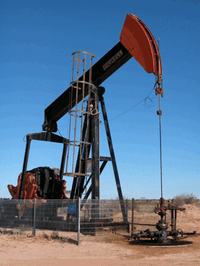Are you a mineral or royalty owner in the College Station area? If so, you’ll want to mark your calendar for an important city council meeting tomorrow and consider signing up to voice your opinions.
The College Station City Council will be considering an Urban Drilling Ordinance on January 22nd and the public is invited to attend and give comments. Speakers may present a 3 minute presentation.
For many royalty owners, restrictive ordinances such as this one prevent responsible oil and gas development and infringe on private property rights. Most concerning is the 1,500-foot setback requirement contained in the ordinance. Concerned owners assert that this requirement is unnecessary intervention because research confirms that 600-foot setbacks are enough to protect public health. If this is true, then this ordinance would amount to a de facto ban, if passed. These owners are calling for the community to base decisions about oil and natural gas activity on sound science.
College Station City Council Meeting
City Hall - Council Chambers 1101 Texas Avenue S., College Station, Texas
Thursday, January 22, 2015, 5:30 - 7 p.m.
agenda item #14-897
More on Eagle Ford restrictions: Fracking Bans in Texas


